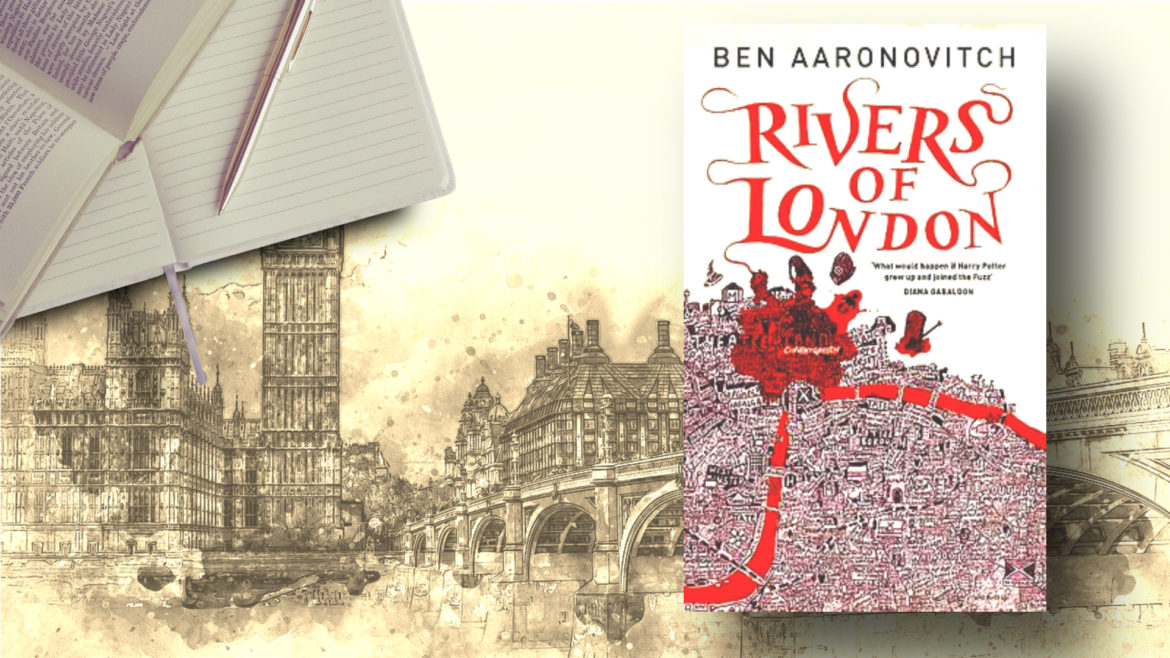Ben Aaronovitch’s Rivers of London (Midnight Riot in US) suffers a bit from an identity crisis. It tries to be a fantasy-fiction novel, a police procedural, a London guide, a commentary on race all at the same time, but never quite succeeding. There is so much going on in every single page, that it was often hard to remember how I arrived at a particular point in the story and whether it was significant.
The Plot
Let’s start at the beginning. Peter Grant, our hero and a wizard-in-making, an adult Harry Potter if you will, is a newly graduated Police Constable in the Met (the London police force, not the New York city museum). His primary job seems to involve enduring the frosty night air while standing guard on crime scenes.
The plot kicks off when a William Skirmish is bludgeoned to death by a wealthy British producer for no apparent reason. On the scene of the murder, Peter Grant is accosted by a ghost (yes, that’s right) who gives him a tip on the crime. This tip brings Grant firmly into the center of the magical world of London, with Chief Inspector Nightingale (The Wizard) as his guide. This murder embroils them in similar crimes and a hunt begins for the entity causing them all.
As our crime busting duo track down the killer they get dragged in a property dispute between Mother and Father Thames. The Gods of the rivers of London are mythical creatures personified by people who drowned in them.

Photo Credit – Sapan Patel (unsplash.com)
The Review
The plot is all over the place. Nightingale and Grant are called on to investigate several other crimes and these diversions take away the readers from the central story line. All characters are two-dimensional and with so much happening on the pages it’s hard to spend time with anyone long enough.
Magic exists but is an ambiguous concept, and it’s difficult to know how much power anyone really possesses. Aaronovitch spends significant time referencing the history of London rivers, old magic articles and theories, but instead of being entertaining, these snippets of information appear like wiki entries.
There is an unusual emphasis on explaining magic through science. You see the fallacy, right? If one could explain magic through science, it wouldn’t be magic anymore, it would just be ‘how things work’. The intention is admirable though and Aaronovitch rides the ‘energy in the universe is constant’ wave for some time before hitting a roadblock. Why do rivers have spirits? Why some people can feel vestigia and others can’t? When Peter asks those questions, Nightingale shrugs his shoulders and says “dunno”. As a reader, that is disappointing because one figured if everything can be explained then why shouldn’t this be?
In general, there is much ado about everything — Nightingales’ age, magic and technology, the magical effect of vampires. With so many pages spent on build-up, the revelation is extremely underwhelming.
What really shines through the couple hundred pages is the humor. The dialogs are sharp, the wit dry and the pace is quick. Where the novel falters is in creating engaging complex characters, whose future one could feel invested in. Aaronovitch has written many more books in the series, but I am yet to pick up another one.
For more book reviews, go here


